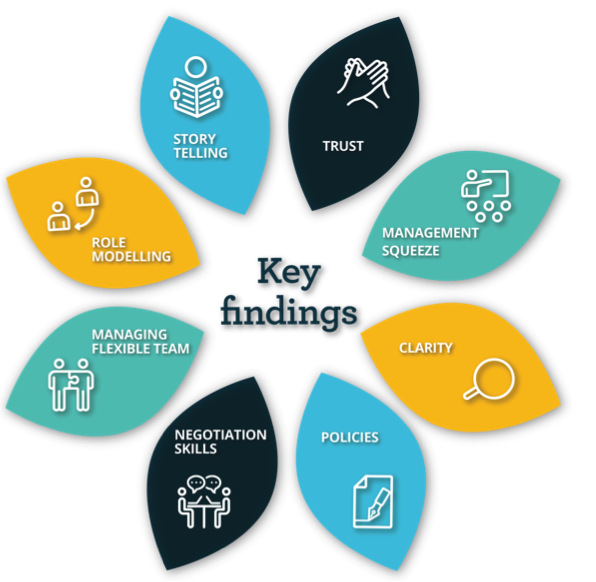Editor’s Note: This is a guest post by Natalie Goldman – CEO of FlexCareers. Her opinions are her own.
Recently I have attended a number of “Future of Work” conferences, talks and webinars. One key aspect that kept getting repeated was the importance of workplace flexibility.
What I am starting to see is that this is no longer the future way of work – we are starting to see it more and more from large corporates to SMEs. What I am also observing is a huge shift in the market from candidates/employees – in that more and more often flexibility is on the top of their wish list. So much so that candidates will often take a flexible role over more money because of the quality of life that it provides them.
Often it is because of caring responsibilities, but it is also due to recognizing that there is life beyond work and the fact that the two worlds can actually co-exist in a healthy productive way.
So, I would like to share with you several reasons why mainstreaming flexible work is good for your business regardless of the size of your organisation.
Flexible work is capable of:
- Enabling businesses to be sustainable and adapt to change
- Providing a pathway to gender equality
- Assisting with talent attraction and retention
- Improving workplace productivity
- Enabling effective performance development to drive better business outcomes
From the perspective of your customers:
From the perspective of your customers, how can your people working flexibly positively impact them?
- Increase the level of customer satisfaction through better engagement of your team members
- Enables better diversity of your team members to reflect your customer base
- Flexible working enables you to respond to your customers’ needs
From the perspective your team members:
- Enhances the well-being of team members & their families
- Gives team members the opportunity to exert control over when and how they work, which has proven mental health benefits
- Eases the physical stress and burden of excess commuting time
Why flexible working is a must:
Last but not least, the case for your business on why flexible working is a must …
- Attracts and retains skilled and engaged talent
- Positive impact across teams – encourages collaboration, communication and trust
- Increases productivity as team members work when and how suits them best
- Provides the best utilisation of office space – you can minimise unnecessary cost, i.e. cost saving!
Organisational feedback:
Recently, FlexCareers ran a series of roundtables of Australian large organisations, Government agencies and not for profits and their feedback was universal.
- No-one is getting it right (yet) – although many of the organisations that attended have begun their flexibility journey, no-one has reached their destination. Everyone is learning.
- Everyone has the same challenges – no matter the industry vertical or the size of the organisation, the issues that are being faced were the same – because we are talking about people, not the organisation.
- Early adopters are starting to see advantages – many of the larger organisations that have been working on this for a while are seeing the benefits outlined above due to a flexible work culture. It may take time, but the benefits are clear.
What can be done to create a flexible work environment?
- Trust: Ensure that you have trust as a solid foundation.
- Management Squeeze: Your managers often feel the pressure between the culture directive from the top and managing the employees’ expectations – support your managers.
- Clarity: Being clear on what flexible work arrangements are available.
- Policies: Have clear policies that support not hinder a flexible work culture.
- Negotiation skills: Negotiation is at the heart of agreeing to flexible work but few people do it well. Up-skill your people to effectively negotiate (both managers and employees).
- Managing a flexible team: Up-skill your managers to manage a team flexibly.
- Role modelling: If you can see it, you can be it. Managers through to the top need to role model flexible working otherwise it is just words.
- Story telling: Be sure to share flexible working stories throughout the business. We are social creatures and story-telling works to embed a new culture.
 Flexible work is not some futuristic way of working but we see it alive and well in many organisations who will attest to the benefits.
Flexible work is not some futuristic way of working but we see it alive and well in many organisations who will attest to the benefits.
Flexibility is good for business so what’s stopping you from becoming more flexible?





